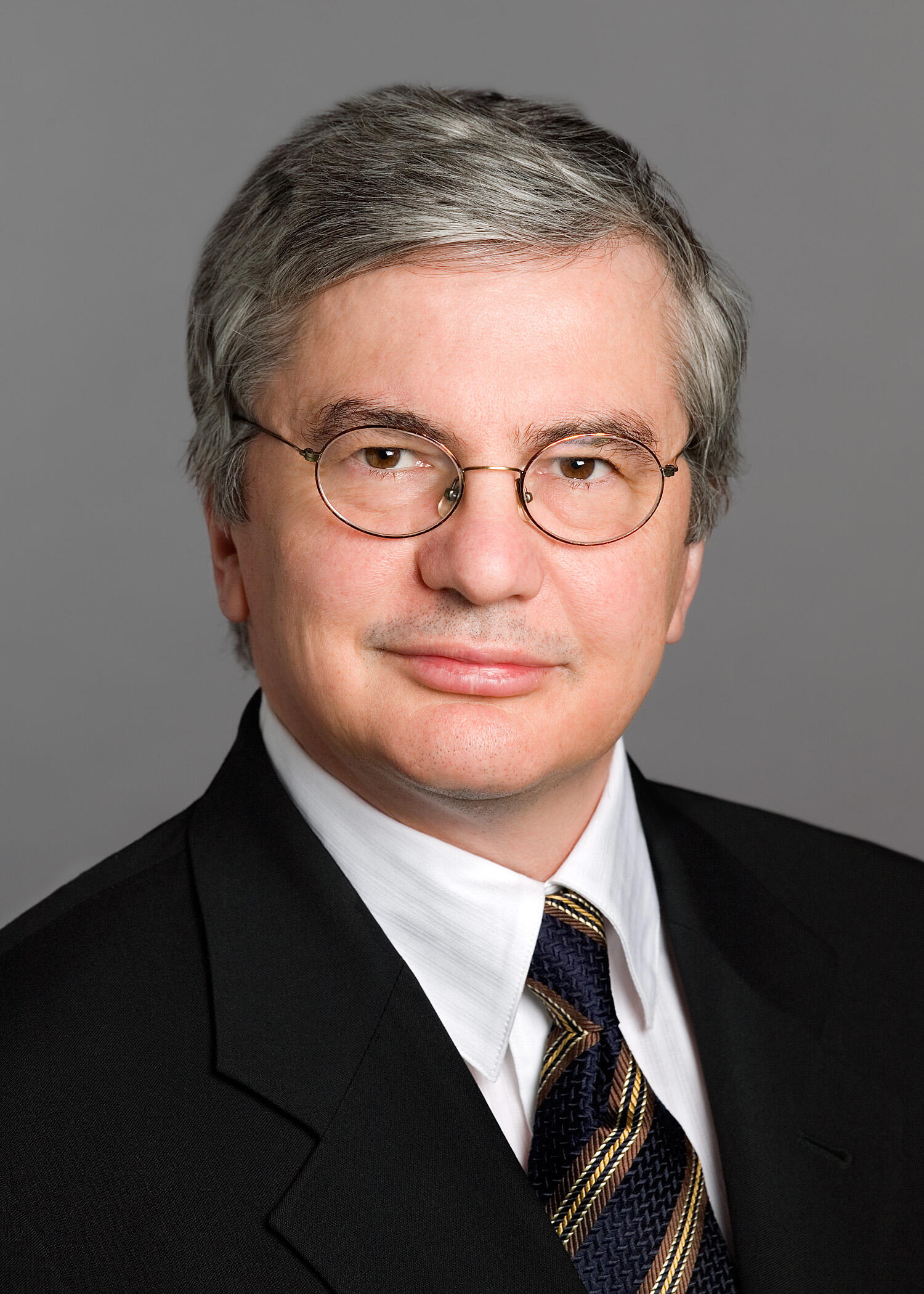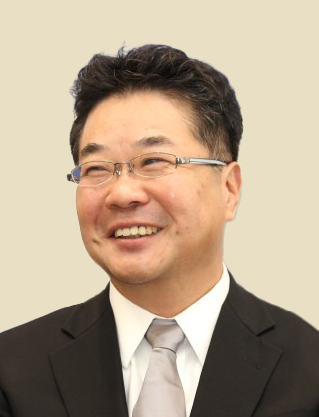The 2023 Keio Medical Science Prize Awardees
Napoleone Ferrara, M.D.

Distinguished Professor of Pathology/Adjunct Professor of Ophthalmology and Pharmacology,
University of California San Diego
Reason for Selection
"Molecular Basis of Angiogenesis and its Application"
Blood vessels form a pipeline that delivers oxygen and nutrients to all organs in our bodies. However, how the vascular network spreads during development was unclear. Dr. Napoleone Ferrara first succeeded in explaining the molecular basis of this fundamental process through the discovery of Vascular Endothelial Growth Factor (VEGF), today recognized as the central player in the regulation of blood vessel growth (angiogenesis). Dr. Ferrara developed a neutralizing antibody against VEGF and found that it stops angiogenesis in several pathological conditions, including cancer and eye diseases. At present, VEGF blockers are routinely used as a therapeutic option for various human cancers and represent the first choice for treating age-related macular degeneration, the major cause of adult blindness. The fundamental knowledge originating from his basic research pioneered a number of recent advances in medical science. In view of these seminal contributions to the field of angiogenesis, Dr. Ferrara is awarded with the Keio Medical Science Prize.
Background
Education
- 1975-1981
- M.D. University of Catania Medical School, Catania, Italy
Position
- 1983-1985
- Postdoctoral Fellow, Reproductive Endocrinology Center, University of California, San Francisco
- 1985-1986
- Intern, Dept. of Obstetrics and Gynecology, Oregon Health Sciences University
- 1986-1988
- Postdoctoral Fellow, Cancer Research Institute, University of California, San Francisco
- 1988-1993
- Scientist, Dept. of Cardiovascular Research, Genentech, Inc.
- 1993-1997
- Senior Scientist, Dept. of Cardiovascular Research, Genentech, Inc.
- 1997-2002
- Staff Scientist, Dept. of Molecular Oncology, Genentech, Inc.
- 2002-2012
- Genentech Fellow, Genentech, Inc.
- 2013-present
- Distinguished Professor of Pathology, University of California, San Diego
- 2013-present
- Adjunct Professor of Ophthalmology, University of California, San Diego
- 2015-present
- Adjunct Professor of Pharmacology, University of California, San Diego
- 2020-present
- Hildyard Endowed Chair in Eye Disease, University of California, San Diego
Major Honors/Awards
- 2006
- General Motors Cancer Research Award
- 2010
- Lasker-DeBakey Clinical Medical Research Award
- 2013
- Breakthrough Prize in Life Sciences
- 2014
- Antonio Champalimaud Vision Award
- 2014
- Canada Gairdner International Award
Comments
It is a great honor to be an awardee of the 2023 Keio Medical Science Prize, which I am delighted to accept on behalf of my colleagues and collaborators. I was fortunate to discover over thirty years ago vascular endothelial growth factor (VEGF). Studying the VEGF pathway led me to a journey of scientific discovery and clinical translation that resulted in advances in cancer therapy and unprecedented vision preservation in patients with age-related macular degeneration and other blinding disorders.
Kazutoshi Mori, Ph.D.

Professor, Department of Biophysics
Graduate School of Science, Kyoto University
Reason for Selection
"Molecular Mechanism of the Unfolded Protein Response"
Endoplasmic reticulum (ER) stress response (unfolded protein response) is a homeostatic mechanism in which molecular chaperones are transcriptionally activated when secretory and membrane proteins with abnormalities of higher-order structure accumulate in the ER. Dr. Kazutoshi Mori identified IRE1, an ER stress sensor molecule, and HAC1, a transcription factor that undergoes IRE1-dependent splicing, in budding yeast. In mammals, he showed that the IRE1-HAC1 pathway is conserved as the IRE1-XBP1 pathway, and that ATF6 additionally functions as both a sensor and a transcription factor. He has clarified the physiological significance of the ATF6 pathway during early development. With respect to ER-associated degradation, XBP1 transcriptionally induces factors participating in the ubiquitin-proteasome system and mannosidases such as EDEM2 are responsible for the mannose pruning that occurs in the conformationally abnormal glycoproteins. Dr. Mori's pioneering research has clarified the molecular mechanisms of the ER stress response, and the ripple effects are now being spread in diabetes, neurodegenerative disorders and cardiac diseases.
Background
Education
- 1977
- Entered the Faculty of Engineering, Kyoto University
- 1978
- Moved to the Faculty of Pharmaceutical Sciences, Kyoto University
- 1981
- Moved to the Faculty of Pharmaceutical Sciences, Kyoto University
- 1981
- Graduated from the Faculty of Pharmaceutical Sciences, Kyoto University
- 1981-1983
- Master course student of the Graduate School of Pharmaceutical Sciences, Kyoto University
- 1983-1985
- Doctoral course student of the Graduate School of Pharmaceutical Sciences, Kyoto University
- 1987
- Received Ph.D. from Kyoto University
Position
- 1985-1989
- Instructor, Gifu Pharmaceutical University, Gifu, Japan
- 1989-1993
- Postdoctoral Fellow, University of Texas Southwestern Medical Center at Dallas, USA (supervised by Drs. M.-J. Gething and J. Sambrook)
- 1993-1996
- Deputy Research Manager, HSP Research Institute, Kyoto, Japan
- 1996-1999
- Research Manager, HSP Research Institute, Kyoto, Japan
- 1999-2003
- Associate Professor, Graduate School of Biostudies, Kyoto University, Japan
- 2003-present
- Professor, Department of Biophysics, Graduate School of Science, Kyoto University, Japan
Major Honors/Awards
- 2009
- Canada Gairdner International Award
- 2014
- Albert Lasker Basic Medical Research Award
- 2014
- Shaw Prize in Life Science and Medicine
- 2016
- Imperial Prize and Japan Academy Prize
- 2017
- 2018 Breakthrough Prize in Life Sciences
Comments
It is my great pleasure and honor to receive Keio Medical Science Prize embracing prestigious recipients. Retrospectively, I decided to go to USA simply to learn molecular biology in 1989 when I was 30 years old, and met the Unfolded Protein Response (UPR) at Dallas, Texas. I was fascinated by its novelty as an intracellular signaling, and since then I worked hard to clarify its molecular mechanism and physiological importance. As a result, together with contributions from other researchers, the UPR has grown up as an important field, which is also involved in the development and progression in various diseases. This receipt further encourages me to make every effort for research.
